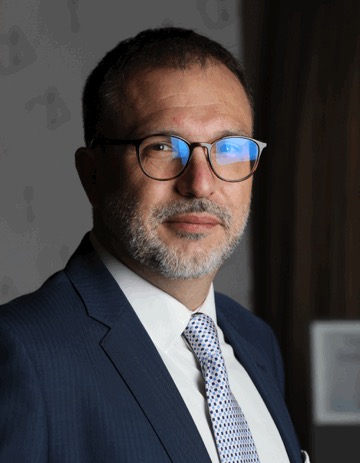Studying at the University of Verona
Here you can find information on the organisational aspects of the Programme, lecture timetables, learning activities and useful contact details for your time at the University, from enrolment to graduation.
Academic calendar
The academic calendar shows the deadlines and scheduled events that are relevant to students, teaching and technical-administrative staff of the University. Public holidays and University closures are also indicated. The academic year normally begins on 1 October each year and ends on 30 September of the following year.
Course calendar
The Academic Calendar sets out the degree programme lecture and exam timetables, as well as the relevant university closure dates..
| Period | From | To |
|---|---|---|
| 1° periodo di lezioni - 2° anno (1A) | Sep 29, 2017 | Nov 9, 2017 |
| 1° periodo di lezioni - 1° anno (1B) | Nov 10, 2017 | Dec 23, 2017 |
| 2° periodo di lezioni - 2° anno (2A) | Feb 8, 2018 | Mar 24, 2018 |
| 2° periodo di lezioni - 1° anno (2B) | Apr 5, 2018 | May 19, 2018 |
| Session | From | To |
|---|---|---|
| Sessione invernale – 2 appelli | Jan 9, 2018 | Feb 7, 2018 |
| Sessione estiva – 2 appelli | May 22, 2018 | Jul 14, 2018 |
| Sessione autunnale – 2 appelli | Aug 28, 2018 | Sep 26, 2018 |
| Session | From | To |
|---|---|---|
| Sessione autunnale – ottobre 2017 | Oct 16, 2017 | Oct 16, 2017 |
| Sessione straordinaria – marzo 2018 | Mar 29, 2018 | Mar 29, 2018 |
| Sessione estiva – luglio 2018 | Jul 5, 2018 | Jul 5, 2018 |
| Period | From | To |
|---|---|---|
| All Saints Day | Nov 1, 2017 | Nov 1, 2017 |
| Immaculate Conception | Dec 8, 2017 | Dec 8, 2017 |
| Vacanze di Natale | Dec 24, 2017 | Jan 6, 2018 |
| Easter break | Mar 30, 2018 | Apr 3, 2018 |
| Liberation Day | Apr 25, 2018 | Apr 25, 2018 |
| Festa dei lavoratori | May 1, 2018 | May 1, 2018 |
| Patron Saint Day | May 21, 2018 | May 21, 2018 |
| Republic Day | Jun 2, 2018 | Jun 2, 2018 |
Exam calendar
Exam dates and rounds are managed by the relevant Law Teaching and Student Services Unit.
To view all the exam sessions available, please use the Exam dashboard on ESSE3.
If you forgot your login details or have problems logging in, please contact the relevant IT HelpDesk, or check the login details recovery web page.
Should you have any doubts or questions, please check the Enrollment FAQs
Academic staff
 roberto.flor@univr.it
roberto.flor@univr.it
 gianluigi.lucietto@univr.it
gianluigi.lucietto@univr.it

Migliorati Lorenzo
 lorenzo.migliorati@univr.it
lorenzo.migliorati@univr.it
 045802 8135
045802 8135
Study Plan
The Study Plan includes all modules, teaching and learning activities that each student will need to undertake during their time at the University.
Please select your Study Plan based on your enrollment year.
1° Year
| Modules | Credits | TAF | SSD |
|---|
To be chosen betweenTo be chosen betweenTo be chosen betweenTo be chosen betweenTo be chosen between2° Year activated in the A.Y. 2018/2019
| Modules | Credits | TAF | SSD |
|---|
To be chosen betweenTo be chosen betweenTo be chosen between| Modules | Credits | TAF | SSD |
|---|
To be chosen betweenTo be chosen betweenTo be chosen betweenTo be chosen betweenTo be chosen between| Modules | Credits | TAF | SSD |
|---|
To be chosen betweenTo be chosen betweenTo be chosen between| Modules | Credits | TAF | SSD |
|---|
Legend | Type of training activity (TTA)
TAF (Type of Educational Activity) All courses and activities are classified into different types of educational activities, indicated by a letter.
Risk, crisis, conflict: political analysis of emergencies (2017/2018)
Teaching code
4S003645
Teacher
Coordinator
Credits
6
Language
Italian
Scientific Disciplinary Sector (SSD)
SPS/01 - POLITICAL PHILOSOPHY
Period
1° periodo di lezioni - 1° anno (1B) dal Nov 10, 2017 al Dec 23, 2017.
Learning outcomes
The course aims at introducing and discussing some of the major issues concerning political philosophy, especially those related to the contemporary global challenges that interest this field of research. What are the main political challenges of our present? What are the conceptual tools at our disposal to understand and possibly solve new and unprecedented emergency crises, conflicts, global risks? The course will tackle these themes by using both philosophical texts and literary, cinematic tools in order to broaden the political and cultural comprehension of phenomena.
Program
Violence and radicalization: contemporary transformations of political conflict.
How is contemporary violence to be understood? How can we decodify its metamorphoses in light of both a growing radicalism that shapes itself according to religious fundamentalism and an indiscriminate use – by statal and non-statal actors – of violence on harmless poepole? Is violence today still a strategic means for politics or has it become a global production of death as an end in itself? In the first part of the course we will analyze the above mentioned questions in light of the so-called “global war” post 9/11. Who are the protagonists of contemporary global violence? Who are the regular combatants and who are the irregular ones? Who are the victims? What are the differences between the traditional figure of the partisan who irregularly fights for their land and today’s irregular warrior who fights, in the name of God, a spaceless and timeless conflict?
In the second part of the course we will analyze, within the mentioned frame, the features of contemporary radical political subjectivation as it presents itself in the so-called jihadism. We will investigate who are the young people that today convincingly fight – according to an absolute ideology – a war in the name of a transcendent entity. By using the interpretive frame of some of the most influential experts in the field (Roy, Guolo, Khosrokhavar) we will try to comprehend the social causes and the political effects of what has been defined “the islamization of radicalism”.
| Author | Title | Publishing house | Year | ISBN | Notes |
|---|---|---|---|---|---|
| Olivier Roy | Generazione Isis: chi sono i giovani che scelgono il califfato e perché combattono l’occidente | Feltrinelli | 2017 | Testo in programma d'esame | |
| Olivier Roy | La santa ignoranza. Religioni senza cultura | Feltrinelli | 2009 | Testo suggerito fra le letture ulteriori di approfondimento | |
| Renzo Guolo | L’ultima utopia. Gli Jihadisti europei | Guerini e Associati | 2015 | Testo in programma d'esame | |
| MARIO GIRO | Noi terroristi. Storie vere dal Nordafrica a Charlie Hebdo | Guerini e Associati | 2015 | Testo suggerito fra le letture ulteriori di approfondimento | |
| Adriana Cavarero | Orrorismo, ovvero della violenza sull’inerme | Feltrinelli | 2007 | testo in programma d'esame | |
| F. Khosrokhavar | Radicalization: Why Some People Choose the Path of Violence | The New Press | 2017 | Testo suggerito fra le letture ulteriori di approfondimento | |
| Carlo Galli | Spazi politici. L'età moderna e l'età globale | il mulino | 2001 | Testo suggerito fra le letture ulteriori di approfondimento | |
| Carl Schmitt | Teoria del partigiano. Integrazione al concetto del politico | Adelphi | 2005 | Testo in programma d'esame |
Examination Methods
The teaching method will be based on the reading and interpretation of the texts, class discussion, analysis of speficic case-studies and students’ active participation through oral presentations. Further material will be given and analysed during classes. Final oral examination will focus on both text analyses and class discussion. For students attending regularly the course there will be also the possibility to work on a specific case and provide an in-depth analysis of a specific issue related to the course. This will give attending students the possibility to apply analytical tools acquired during the course.
Teaching materials e documents
-
 programma e testi consigliati (ita/engl)
(octet-stream, it, 17 KB, 24/07/17)
programma e testi consigliati (ita/engl)
(octet-stream, it, 17 KB, 24/07/17)
Type D and Type F activities
Le attività che consentono l’acquisizione dei crediti riservati alle attività formative a libera scelta dello studente (TAF D) sono le seguenti:
• Un insegnamento attivato nei Corsi di studi afferenti al Dipartimento di Scienze Giuridiche;
• Un laboratorio didattico attivato nei Corsi di studi afferenti al Dipartimento di Scienze Giuridiche;
• Un insegnamento previsto dall’Offerta Formativa di Ateneo, non impartito nell’ambito dei corsi di studi afferenti al Dipartimento di Scienze Giuridiche: il riconoscimento dei crediti acquisiti sarà subordinato alla preventiva presentazione di coerenti programmi formativi valutati e approvati dal Collegio didattico.
• Attività formative organizzate dai singoli docenti del Collegio didattico o del Dipartimento di Scienze Giuridiche: previa approvazione del Collegio;
• Attività formative che implicano la partecipazione a convegni o seminari organizzati sotto il “logo” del Dipartimento di Scienze Giuridiche o dell’Ateneo: devono essere preventivamente approvate dal Collegio didattico indicando un docente di riferimento del Collegio didattico ovvero del Dipartimento di Scienze Giuridiche.
• Attività formative che implicano la partecipazione a convegni o seminari organizzati prive del “logo” del Dipartimento di Scienze Giuridiche o dell’Ateneo: devono essere approvate dal Collegio didattico indicando un docente di riferimento del Collegio didattico ovvero del Dipartimento di Scienze Giuridiche.
Le attività che consentono l’acquisizione dei crediti riservati alle ulteriori attività formative (TAF F) sono le seguenti:
• Ulteriori competenze linguistiche (6 cfu)
• Stage o Project Work (6 cfu)
Al link https://www.univr.it/it/i-nostri-servizi/segreterie-studenti/giurisprudenza#categdoc_7103 la modulistica per l'inserimento di attività non selezionabili in autonomia dallo studente in sede di compilazione del piano degli studi
Modules not yet included
Career prospects
Module/Programme news
News for students
There you will find information, resources and services useful during your time at the University (Student’s exam record, your study plan on ESSE3, Distance Learning courses, university email account, office forms, administrative procedures, etc.). You can log into MyUnivr with your GIA login details: only in this way will you be able to receive notification of all the notices from your teachers and your secretariat via email and soon also via the Univr app.
Student mentoring
Internships
Internships are aimed at enabling students to gain direct knowledge of the world of work and to acquire specific professional skills.
Internships are carried out under the responsibility of an individual lecturer, and can be carried out in professional firms, public administration bodies and companies recognised by the University of Verona.
Any CFU credits gained by doing internships will be recognised and recorded by the University in accordance with the relevant University regulations in force (Regolamento d’Ateneo per il riconoscimento dei crediti maturati negli stage universitari).
For further information on internships, please go to: https://www.univr.it/it/i-nostri-servizi/stage-e-tirocini.
Language skills
Graduation
List of theses and work experience proposals
| theses proposals | Research area |
|---|---|
| Analisi e riorganizzazione delle strutture comunitarie | Various topics |
| La social network analysis applicata allo studio dei contesti colpiti da eventi catastrofici | Various topics |
| L'intervento sociale in situazioni d'emergenza | Various topics |
| Politiche d'intervento in condizioni d'emergenza | Various topics |
| Terzo settore e gestione delle situazioni d'emergenza | Various topics |














